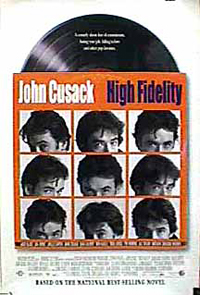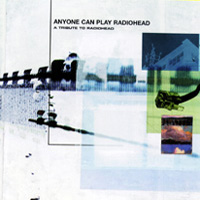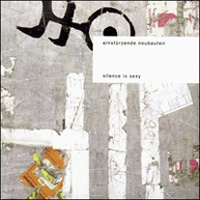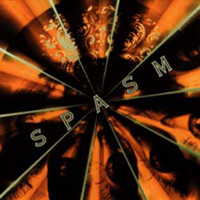 High Fidelity
High Fidelity
with John Cusack, Jack Black, Joelle Carter, Lisa Bonet, etc., etc., et al.
Directed by Stephen Frears
Based on the book by Nick Hornby
by Lex Marburger
OK, so I read the book first… I know, that’s just setting myself up for disappointment. A book, in general, has the possibility of adding such depth to a story, it’s impossible to capture identically in a movie lasting two hours. In my defense, I read the book a couple years ago. It was given to me by an aunt who thought I needed to grow up (or something). But that’s a different story…
Seems to me that the main hurdle that High Fidelity had to overcome is that there isn’t really much of a story. Guy loses girl, guy frets and obsesses, guy wins girl back after her father dies, guy grows up a little. A little. So who cares, really? The plot is not the point here. Much in the vein of Douglas Coupland’s collection of slacker stories, the point is to examine the life of the subject, and how he reacts to the day-to-day occurrences of his life.
What makes the book and movie appealing to many is that he owns a record store. An elite record store. And his tastes range from Stereolab to the 13th Floor Elevators to Bob Dylan to Captain Beefheart. So right off, he’s cool, right? An obsessed hermit, but cool. To a lot of different people (due to his wide taste in music). And because it’s John Cusack. To a lot of us (but not my aunt), this would be a dream job, even if we had to work with Jack Black (better known as Tenacious D and one of the drug smugglers in the Foo Fighters “Learning to Fly” video) and Todd Louiso (never seen him before). But he’s full of malaise. Why? His girlfriend left him. Boo hoo.
(OK, I’m being kinda unfair. Anyone who’s lost a girlfriend knows it totally sucks. But come on, this is John Cusack here. He’s cute and lovable. There’s no way he can make himself a into some loser. A slacker, yes. A loser, no.)
So he frets and obsesses about her, dredges his past relationships, and gets her back in the most unlikely of circumstances. Boom, end of movie. And why should we care? Because of who he is, because of how we see him, because we are supposed to care. Because we are supposed to have a deeper insight into his character. That’s what the book’s about. We see his longing to be a DJ, his love of the art, and how happy it’s made him. We see him clinging to, and pushing away, everything he’s had, and everything he’s experienced. We see him hiding from the world, lost in his esoteric musings of “Top 5” lists and rambling musical dissertations. We identify.
We see him edging dangerously toward the slacker slope, falling back into the spiral of apathy, and we see him rise above, a DJ again, triumphant. But a DJ in Chicago? Who cares about that? Remember, the book takes place in London, home of the colossal dance party/rave, where as a DJ, he’d be commanding thousands of dancing bodies, not just a couplea hundred in some basement under the El train. Such is the power of the written word, to place an action in context, to allow us a deeper look.
But what of the movie? What motivates us to keep watching a simplistic plot?
1. John Cusack’s narration and character, sorta like a grown up Say Anything.
2. Jack Black. His manic characterizations are a perfect foil for Cusack’s pseudo-neuroses.
3. Watching them kick the living shit out of Tim Robbins.
4. The music. Man, and I thought Rushmore had the best soundtrack.
5. There is no number 5.



